
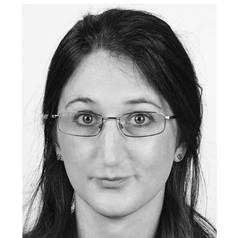
Adrienne Macartney
I am researching the process of atmospheric carbon dioxide in the ancient Mars atmosphere being sequestered into stable mineral carbonate. Such carbonate minerals have been observed by satellite, rovers, landers and in meteorites from Mars that have landed on Earth. I examine these sources and attempt to resolve the mineralogy and reaction pathways involved. There is a lot of advanced microscope work of Mars fragments, which I love. I also conduct laboratory experiments in pressure vessels that mimic early Mars hydrothermal systems.
We can utilise the same reactions in rock formations on Earth to store atmospheric carbon dioxide as minerals. A method much more stable than other current carbon capture and storage methods. I am also working with Engineers in Space Glasgow to build a new prototype rover tool that uses ultrasonic grinding to expose a smooth rock surface, so that rock reactions can be observed more clearly.
I write weekly for the Huffington Post and run the public outreach project 'Science Hooker': Check it out.
Less ![]()
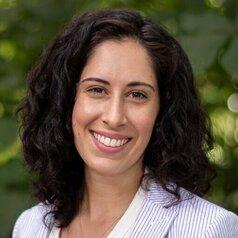
Adrienne Wood
Assistant Professor of Psychology, University of Virginia
I am an Assistant Professor of Social Psychology in the Department of Psychology at the University of Virginia, where I run the Emotion and Behavior Lab. My lab studies the dynamic process of building and maintaining social connections at multiple levels of analysis: at the level single interactions, we examine how people use laughter, conversation, and synchrony to connect; at the level of social networks, we examine how people build ties to a community; and at the level of societies, we examine the social consequences of cultural diversity. I earned my PhD in Psychology from the University of Wisconsin - Madison and did my postdoctoral work at Dartmouth College. My research is currently supported by an NSF CAREER Award and a Templeton Foundation grant. I am a proud Kansas Citian and lover of dogs, drawing and oil painting, and piano.
Less ![]()
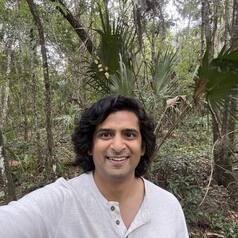
Advait M. Jukar
Assistant Curator of Vertebrate Paleontology, University of Florida
I am currently the Assistant Curator of Vertebrate Paleontology at the Florida Museum of Natural History. I received his masters and PhD in Environmental Science and Policy from George Mason University and a Bachelors in Biology from Reed College. Before coming to Florida, I was the Lecturer of Paleontology at the University of Arizona, a Gaylord Donnelley Postdoctoral Fellow at Yale, and a Deep Time Peter Buck Postdoctoral Fellow at the Smithsonian’s National Museum of Natural History.
My research focusses on the ecology and evolution of terrestrial ecosystems. Much of my research has centered on the paleoecology and systematics of subtropical and tropical mammals from the Indian Subcontinent, but I have also conducted several studies on the causes and consequences of the extinction of large vertebrates in North America and South Asia. In addition to my work on mammals, I also study dinosaur ecosystems in North America and India. I have conducted field work most recently in India, but also in Georgia, New Jersey, and Montana. I also have a soft spot for the fossil record of elephants and their kin, and the history of paleontology.
In addition to this research, I have helped design museum exhibitions at the Yale Peabody Museum and for the Smithsonian’s Deep Time fossil halls. I have also developed public outreach activities on the evolution of elephants, dinosaurs, and whales, have advised the Indian government on establishing museums, and am actively involved in the world of biodiversity policy.
Less ![]()
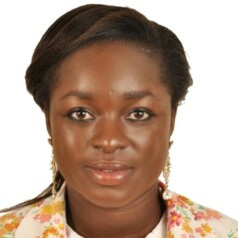
Adwoa Owusuaa Bobie
Research Fellow, Center for Cultural and African Studies, Kwame Nkrumah University of Science and Technology (KNUST)
Dr. Adwoa Owusuaa Bobie is a researcher with interests in studying Sociology and African studies at the Kwame Nkrumah University of Science and Technology (KNUST). Before her appointment at KNUST, she worked for three years as a Postdoctoral Fellow at the Department of Sociology, University of Ghana on the project titled "Advancing Creative Industry for Development in Ghana". This project explored how the Ghanaian creative industry can be enhanced to contribute to national development.
Dr. Bobie obtained her PhD from the University of Basel, Switzerland. Her PhD explored how contemporary Africa fashion designers combine global influence with ethno-cultural factors to produce aesthetic cosmpolitan fashion in Lagos, Nigeria. She argues that, the conscious intersection of the global with the local by African designers, positions African fashion across national borders, emanating in the creation of Aesthetic Cosmopoltanism fashion.
Adwoa obtained her MPhil degree at the University of Ghana from the year 2014 and Bachelor’s at the Kwame Nkrumah University of Science and Technology (Ghana) in 2010. At the MPhil, she worked on “The Youth in the Ghanaian Fashion Industry” which discusses the creativity of young Ghanaian entrepreneurs who are changing the face of fashion with no or little formal training in fashion.
She participated in the first CASB/CODESRIA Summer School programme through which she earned a scholarship with the Fondation Oumou Dilly for her PhD. Adwoa worked as research assistant and also as a freelance research consultant from 2014 to 2016. Major among the projects was “Because I Am a Girl” project funded by Plan International, a United Kingdom based NGO and others funded by Marie Stopes and MasterCard Foundation.
Less ![]()
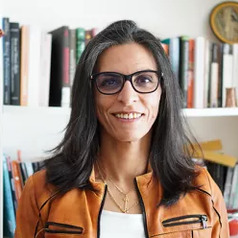
Afaf Jabiri
Senior Lecturer of Global Development Studies, University of East London
Dr Afaf Jabiri is a Senior Lecturer and the Co-Director of the Centre for Social Justice and Change at the University of East London. Before joining UEL in 2017, she held posts at the Centre for Gender Studies, SOAS, and the Gender Institute at the LSE.
For the past ten years, Dr Jabiri has led and contributed to interdisciplinary research projects, delivered undergraduate and postgraduate teaching in the areas of sociology, international development, gender studies, humanitarianism, postcolonial studies, forced and diaspora studies, supervised and contributed to doctoral training and published academic as well as policy-oriented research.
Dr Jabiri joined academia after 17 years of work on issues related to gender equality, humanitarianism, refugees and migrants’ rights, peace, conflict resolution and transitional justice in the Arab region.
She is a leading feminist activist in Jordan and across the Arab region, advocating for equality and social justice across the region. She publishes in both English and Arabic languages.
RESEARCH
Dr Jabiri’s research combines academic and impact-based research for policy reform and change. She takes an interdisciplinary approach in such studies, linking sociology, history, anthropology, international relations and law in her scholarship. Jabiri’s first book, Gendered Politics of Law in Jordan: Guardianship over Women (2016), examines the state as a gender regime and the historical representation of colonial and neoliberal politics in women’s lived realities of the concept of wilaya (guardianship).
Her recent book-entitled Palestinian Refugees women from Syria to Jordan: Decolonising the Geopolitics of Displacements is based on four years of field research in Palestinian camps in Jordan––and including interviews with Palestinian refugee women, aid workers, and representatives of international organisations and NGOs in Jordan. The book examines the experiences of Palestinian women from Syria displaced to Jordan, embroiled between settler colonialism, militarism, nationalism, global refugee governance, and gender regimes subjecting them to multiple forms of structural, gender-based violence.
To expose the history and geopolitics of intersecting oppressive systems working through and upon Palestinian refugee women's gendered bodies in humanitarian settings, the book argues for feminist analysis of the epistemic, settler- colonial violence of anti-Palestinianism, as well as highlights how local women’s groups and frontline workers attempt to fill service gaps. Using a rich theoretical lens to understand women's experiences in refugee camps, this book attempts to decolonise issues around migration, displacement, refugees, and women.
Dr Jabiri has also undertaken research and developed impact case studies that contributed to both knowledge production and policy reform around development issues related to gender equality, gender-based violence during war and conflict in the context of Libya, Syria, Palestine and Yemen. She contributed to several global interdisciplinary action-oriented research projects related to global inequalities and gender-based violence.
Current research:
Dr Jabiri’s current research involves working on a research project on the Silence and Gender-based Sexual Violence (GBSV) during War and Conflict.
The project aims to offer a comprehensive multi-level, interdisciplinary and gender approach to the understanding of GBSV and the silence around it in six countries: Sudan, Yemen, Iraq, Palestine, Jordan, and Lebanon. This aims to fill the knowledge gap between academic research and policy-based research pertaining to the context in which GBSV and rape occur and the factors that lead to women's silence and lack of reporting or disclosure. The project will establish a network of academic and non-academic members who are experts in different conflict and emergency settings contexts, with a long history and experience of working on the issue of rape and sexual violence in the contexts of Iraq, Palestine, Lebanon, Yemen, and Sudan, in addition to academic institutions from the Global North, Britain, USA and Belgium.
Less ![]()

Afni Regita Cahyani Muis
Dosen Prodi Hubungan Internasional, Universitas Darussalam Gontor
A lecturer majoring in International Relations in Universitas Darussalam Gontor who has concentration in political-economic. She has been a contributor to numerous articles, books, and proceedings that relate to International Political Economy. She is too interested in contemporary issues, especially in public policy.
Less ![]()

Afsaneh Razi
Assistant Professor of Information Science, Drexel University
I am an Assistant Professor at the College of Computing and Informatics at Drexel University. I am a Human-Computer Interaction (HCI) researcher who utilizes artificial intelligence to tackle sociotechnical issues using human-centered approaches. My research expertise is positioned at the intersection of HCI, Social Computing, AI/ML, Privacy, and Online Safety. I am passionate about investigating sociotechnical complexities of online harms to design and develop technologies facilitating safer and supportive online interactions, especially for vulnerable populations such as youth.
Less ![]()
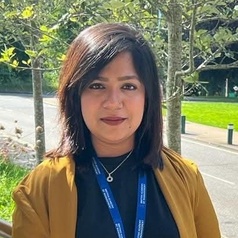
Afshan Jalil
PhD Candidate in Consumer Behaviour and Muslim Fashion, University of the West of Scotland
Less ![]()
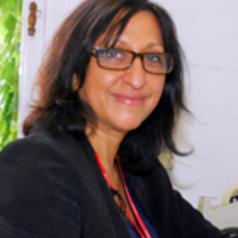
Afshan Malik
Reader in Diabetes and Mitochondrial Research, King's College London
I am a molecular biologist with a very keen interest in all things mitochondria. I run a lab in the diabetes dept at King's College London. Our research is focused on the molecular pathways by which oxidative stress induced changes can contribute to diabetic complications and neurodegeneration with a particular interest in the role of mitochondrial dysfunction in this process. Additionally, we are developing methods to measure mitochondrial health and dysfunction in experimental models and humans, and methods to protect mitochondrial health.
Less ![]()

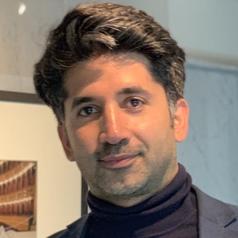
Afshin Shahi
Associate Professor (Senior Lecturer) in Middle East Politics & International Relations at Keele University, Keele University
Dr Afshin Shahi is an associate professor (senior lecturer ) in Middle East politics and International Relations at Keele University. He obtained both his MA and PhD from the School of Government and International Affairs at Durham University. Prior to joining the School of Social, Political, and Global Studies in 2023, he worked at the universities of Durham, Exeter, and Bradford.
In 2018 he was a visiting research fellow at the European University Institute in Florence. His research interests encompass Iranian politics, climate change and conflict, sectarianism, and political Islam in the Middle East. His articles have appeared in scholarly outlets including the Middle East Journal, the British Journal of Middle Eastern Studies, and the Journal of the Royal Society for Asian Affairs.
He is the author of the Politics of Truth Management in Saudi Arabia (Routledge, 2013) and the co-author of a forthcoming book, Iran: the Shia State and the Sunni Minority. He has been part of various editorial boards and for about four years he was an associate editor of the British Journal of Middle Eastern Studies. He is a regular contributor to national and global media outlets including the BBC and Aljazeera. His opinion pieces have appeared in various publications including Forbes magazine, Foreign Policy magazine, and the Conversation. He also actively works with both practitioners and stakeholders in his field. In 2017, he was a recipient of the Vice Chancellor’s Award for Outstanding Achievement at the University of Bradford.
His research interests include Middle East politics & security, political Islam and religious sectarianism. He is the author of 'The Politics of Truth Management in Saudi Arabia' and a number of peer-reviewed articles. He has contributed to international media outlets including, Al Jazeera, Washington Post, Bloomberg Business, the Telegraph, National Public Radio (US) ITV, Sky News and the BBC.
Less ![]()
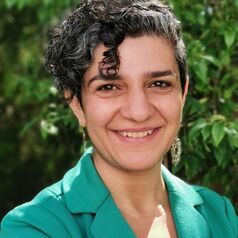
Aftab Erfan
Associate Member, School of Public Policy & Executive Director, Morris J. Wosk Centre for Dialogue, Simon Fraser University
Aftab Erfan is a scholar-practitioner, serving as the Executive Director of the SFU Centre for Dialogue, and Associate Member in the School of Public Policy. She was previously Director of Dialogue and Conflict Engagement at the University of British Columbia, and taught at UBC's School of Community and Regional Planning where she obtained her PhD in 2013. She is a master facilitator, and specializes in the study of deep rooted conflicts, the possibilities of transformative justice, and methods of deliberative democracy and is currently working on a book tentatively titled "facilitating at the end of the world".
Less ![]()
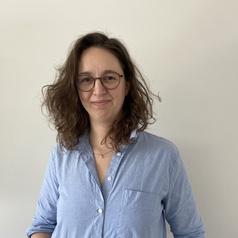
Agatha A. van der Klaauw
Clinical Lecturer in Metabolic Medicine, University of Cambridge
I am a Clinical Lecturer in Metabolic Medicine at the University of Cambridge. My research aims to understand the consequences of obesity on hormone regulation and immune function to improve treatment for people living with obesity.
Obesity leads to more frequent and severe infections, which became poignantly visible during the COVID-19 pandemic. However, immune dysfunction in obesity is poorly understood and understudied. Treatment and clinical outcomes of (severe) infections in people with obesity may be improved by understanding the underlying processes that drive immune dysfunction.
Less ![]()
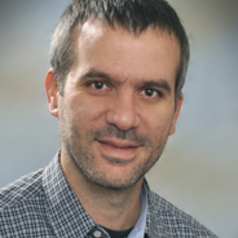
Agelos Delis
Lecturer in Economics, Aston University
I joined Aston Business School in September 2011, having spent the previous two years as Visiting Lecturer at the University of Cyprus. Prior to that, I was for two and a half years Research Fellow at the University of Nottingham.
Less ![]()
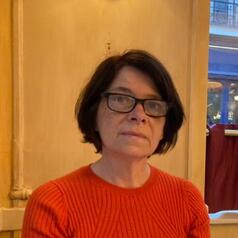
Agnès Maillot
Associate Professor, School of Applied Languages and Intercultural Studies, Dublin City University
My main area of research is the conflict in Northern Ireland, and more particularly Sinn Féin and the IRA, on which I have published many books and articles. I also work on post-conflict politics, covering areas such as victims and reconciliation, the legacy of violence,
I also research contemporary Irish society, as well as multiculturalismalism in France and Ireland, and am I currently working on issues of asylum seekers in the French and Irish contexts.
Less ![]()

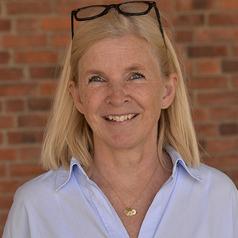
Agneta Herlitz
Professor of Psychology, Karolinska Institutet
Agneta Herlitz is Professor of Psychology at Karolinska Institutet since 2008. Her research has the overarching aim to describe and explain these differences but also to understand the potential impact they may have on society and everyday life. Although the research has a focus on cognition, specifically episodic memory, she is also interested in sex differences in other areas, such as personality, interest, and career choices.
Less ![]()

Agnibha Banerjee
PhD Student, The Open University
I am a PhD Student at The Open University, UK, studying exoplanet atmospheres with the James Webb Space Telescope (JWST). Exoplanets are planets that orbit stars beyond our Solar System. When an exoplanet crosses in front of its host star, some starlight filters through its atmosphere, interacting with gas molecules and atoms before it reaches us on Earth. This light contains fingerprints of the gases in that atmosphere if we split it into its constituent colours (a spectrum). We can then deduce the composition of these atmospheres using computer models to compare the spectral features of known gases with the observed spectrum.
Less ![]()
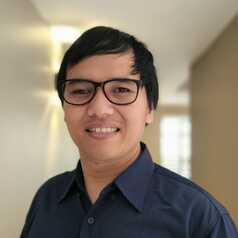
Agus Wicaksana
PhD Candidate in Operations and Supply Chain Management, The University of Melbourne
Less ![]()

Agustín Joel Fernandes Cabal
Investigador predoctoral en Filosofía, Universidade de Santiago de Compostela
Licenciado en Periodismo por la Universidad de Palermo, en Buenos Aires.
Master en Filosofía por la Universidad de Santiago de Compostela.
Doctorando en Filosofía por la Universidad de Santiago de Compostela.
Desarrollo de proyectos en Doc Land Films
Redactor en Diario ABC entre 2019 y 2020.
Less ![]()
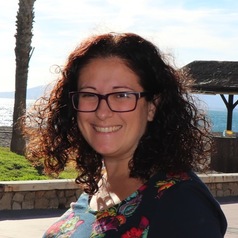
Agustina María Torres Prioris
Profesor Sustituto Interino en el Departamento de Didáctica de la Matemática, de las Ciencias Sociales y de las Ciencias Experimentales, Universidad de Málaga. Miembro del Grupo de Investigación en Enseñanza de las Ciencias y Competencias (ENCIC), Universidad de Málaga
A continuación adjunto una versión resumida de los puntos solicitados de mi curriculum:
-Formación Académica: Doctora en Biología. UMA. 2017; Master en ESO, Bachillerato y FP. UMA. 2015; Master de Fundamentos Celulares y Moleculares de los Seres Vivos. UMA. 2011; Licenciada en Biología. UMA. 2010.
-Experiencia profesional: DOCENCIA, PSI en la UMA. Departamento de Didáctica de las Ciencias Experimentales. Grado en Primaria. 2021-Actualidad. DOCENCIA en FP en TS en Anatomía Patológica, TS en Higiene Bucodental y TS en Laboratorio Clínico. CESUR 2017-Actualidad. DOCENCIA en la asignatura PIM en Botánica, Zoología y Ecología. Grado en Biología, UMA. Curso 2014/15; DOCENCIA en la asignatura de Zoología. Grado en Biología, UMA. Curso 2014/15; DOCENCIA en la asignatura de Zoología. Grado en Biología, UMA. Curso 2013/14; DOCENCIA en la asignatura de PIM en Botánica, Zoología y Ecología Grado en Biología, UMA. Curso 2013/14; Personal Investigador en Formación. UMA. 2011- 2017. Alumna Interna. Departamento de Biología Animal. UMA. 2008-2011. Alumna Interna. Departamento de Biología Celular, Genética y Fisiología. UMA. 2007-2008.
Less ![]()
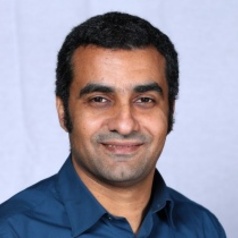
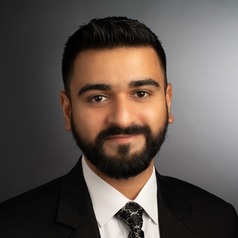
Ahmad Kirmani
Assistant Professor of Chemistry and Materials Science, Rochester Institute of Technology
I am an Assistant Professor of Chemistry & Materials Science at the Rochester Institute of Technology (RIT).
In a career spanning 10+ years, I have researched next-generation solution-processed semiconductor electronics based on colloidal nanocrystals, metal-oxides, and metal-halide perovskite semiconductors. This body of research has so far resulted in over 55 research articles with lead works published in high-impact journals including Nature Energy, Nature Communications, Joule, Advanced Materials, & ACS Energy Letters, besides multiple contributed and invited talks. During my postdoctoral tenure at the National Renewable Energy Laboratory (NREL), I have advanced perovskite optoelectronics for aerospace applications.
My research has drawn attention to the interfacial and microstructural complexity in printed electronics, and the need to understand it for enabling the lab-to-fab transition.
Less ![]()
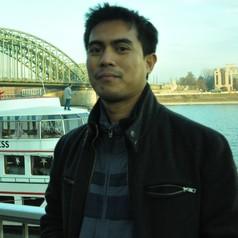
Ahmad Nuril Huda
Lecturer, Universitas Islam Negeri Raden Intan Lampung
Islamic Studies, Anthropology of Religion, New Media Technology, Popular and Visual Culture, Islamic Film.
Less ![]()
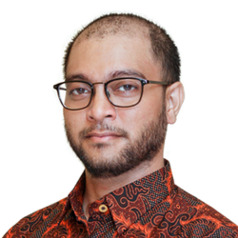
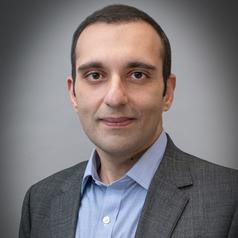
Ahmed Abdulla
Assistant Professor, Mechanical and Aerospace Engineering, Carleton University
Professor Ahmed Abdulla joined the CU Mechanical and Aerospace Engineering faculty on July 1, 2020. Prof. Abdulla investigates energy system design for deep decarbonization—focusing on the role of disruptive energy technologies that sit at a low level of technical readiness, including energy storage systems, advanced nuclear power, and negative emissions technologies. Prof. Abdulla employs process modeling, systems engineering, engineering economics, and quantitative risk and decision analysis in his research. He also pays special attention to integrating insights from public policy and behavioural science in his models in order to optimize the design and deployment of truly sustainable technologies—ones that are both techno-economically viable and socio-politically acceptable.
Less ![]()

Ahmed Khwaja
Professor of Marketing, Business & Public Enterprise, Head of the Marketing Subject Group, Cambridge Judge Business School
Research interests are primarily in marketing strategy and quantitative marketing, including: health care markets; innovation and market entry; customer and employee relationship management; pharmaceutical R&D, retail chain expansion and growth; and social enterprises in emerging markets.
Specific interests are health-related consumption decisions; market entry, retail chain expansion and firm size dynamics; role of experience spillovers and alliances in pharmaceutical R&D and innovation; effect of employee engagement on customer satisfaction and retention; distortions due to moral hazard & adverse selection in health care markets; and how social enterprises balance their “double bottom line” in resource scarce emerging markets.
Academic and methodological interests include dynamic structural models, estimation of games of strategic interaction, matching estimators, asymmetric information & incomplete markets, simulation based econometric methods, and reinforcement learning.
Subject group: Marketing
Less ![]()
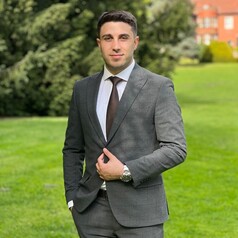
Ahmet Begde
PhD Candidate, Neurorehabilitation, Loughborough University
I am a final year PhD student at Loughborough University with a background in physiotherapy. I have a BSc degree in Physiotherapy and Rehabilitation from Pamukkale University in Turkey and an MSc in NeuroPhysiotherapy from the University of Nottingham in the UK. My PhD also focuses on neurorehabilitation and investigates the effectiveness of dual-task exercise training on cognition, mobility and fall risk in people with dementia. I am an HCPC-registered physiotherapist and a Member of the Chartered Society of Physiotherapy.
Less ![]()

Ahra Ko
Research Project Manager for the Behavior Change for Good Initiative, University of Pennsylvania
Post-doctoral researcher at The Wharton School and School of Arts and Sciences, University of Pennsylvania. Ph.D. in social psychology. Research focuses on functional flexibility of social minds; interplay of social motivation and ecology in shaping thoughts, emotions, and behaviors
Less ![]()

Ai Ming Chow
Postdoctoral Fellow, Management and Marketing, The University of Melbourne
Ai Ming Chow is a Melbourne Early Career Academic Fellow at the University of Melbourne, where she teaches and researches in the field of marketing. Her research focuses on examining the reflexive approach to Indigenous-settler relations to explore potential sites of transformation within and beyond the markets.
She specialises in interpretive research methods including in-depth interviews, fieldwork, netnography and ethnography. She also studies influencer marketing, consumption and consumer culture.
Less ![]()
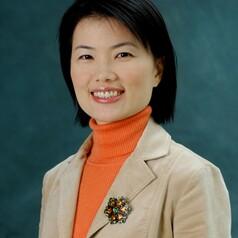
Aichia Chuang
Professor of Organizational Behavior, University of North Carolina – Greensboro
Aichia Chuang is Professor of Organizational Behavior and PhD Director of Business Administration in the Department of Management, Bryan School of Business and Economics at the University of North Carolina at Greensboro. Before joining UNCG, she was the Fu-Bon Endowed Chair in Management and Distinguished Professor at the National Taiwan University in Taiwan where she was Professor of Organizational Behavior and Human Resource Management in the Department of Business Administration. She earned her doctorate in Human Resources and Industrial Relations from the University of Minnesota and her B.A. in Sociology from the National Taiwan University. She served as visiting scholar at Stanford University in the US and Kyoto University in Japan. Chuang’s research interests include leadership, inclusion (person-environment fit and diversity), cross-cultural management, service climate and service performance, creativity, and multilevel theories and methods. Chuang’s research has appeared in such top journals as the Academy of Management Journal, Journal of Applied Psychology, Personnel Psychology, Organizational Behavior & Human Decision Processes, Journal of Organizational Behavior, and Harvard Business Review.
Chuang is currently the HR Ambassador of the HR Division of the Academy of Management representing Taiwan. She was a previous Associate Editor of Human Relations (Financial Times 50). She serves or has served on the editorial boards of Academy of Management Journal, Organizational Behavior and Human Decision Processes, Human Resource Management, Human Resource Management Review, Management and Organization Review, and Asia Pacific Journal of Management.
Less ![]()


Aida Dehkhoda
Postdoctoral Research Fellow, Te Herenga Waka — Victoria University of Wellington
Less ![]()
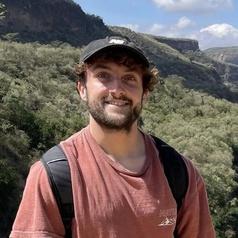
Aidan Byrne
PhD Candidate, Department of Geography, King's College London
Aidan is a final year PhD candidate based at King's College London and the Natural History Museum London, funded by the London NERC DTP. His project utilises open-access remote sensing and climate products to investigate hydrological changes across the East African Rift System, their environmental drivers, and the impacts of changes on water quality and biodiversity.
Less ![]()
- Market Data





















